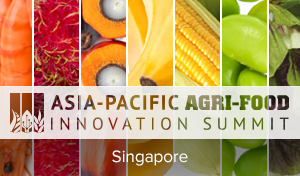BASF’s Gustavo Palerosi Carneiro on Fostering Agricultural Resilience in Europe
Gustavo is joining World Agri-Tech in London this month, to speak on the opening session. In preparation for this, he shared the ways BASF is responding to climate change impacts, and the initiatives and technologies supporting European farmers.
1. How is BASF addressing the challenge of climate change in its agricultural solutions for Europe, particularly regarding crop protection and yield resilience?

From very early on, BASF has been committed to do everything in its power to fight climate change and its impact on agriculture. Already in 2020, for example, we have committed ourselves to help farmers achieve a 30% reduction in greenhouse gas emissions per ton of crop produced.
Fast forward to today, it is obvious that climate change is already happening. Personally, I’m convinced that farming methods need to be adapted to meaningfully reduce emissions while providing food for the growing population. However, farmers work under different conditions, in Europe as well as in the rest of the world. For us, the way to provide farmers with reliable climate-smart solutions is through testing them in the dynamic environment of the farm.
Take our Global Carbon Trials Program: In many cases we achieved a 30% reduction in greenhouse gas emissions compared to standard farming practices, with the right combinations of technologies, products and interventions for the type of crop, regional farming practices and local climate and environment. There is no one-size-fits-all solution, and we will continue evaluating approaches to find what works for farmers.
The results from these trials are an important source of validated information and data that can then be put into practice as part of our Global Carbon Farming Program. We already discuss the learnings from these trials with customers and farmers in different countries and regions and cropping systems, on their own fields, so that we can help co design the most optimal carbon farming program to meet their specific needs and objectives and drive down emissions in agriculture. Our intention through this work is to identify the best interventions that deliver the ultimate CO2e reductions and maximizing their potential for generating carbon credits on their land, now and for the long term. We are committed to being a trusted partner to farmers on this transformative journey towards decarbonization and climate change resilience.
2. What role do you see digital farming technologies playing in enhancing agricultural resilience, and how is BASF incorporating these technologies into its solutions?
When it comes to building resilience within farming systems, digital technologies can provide foresight and precision.
Climate change is making the environments in which farmers operate increasingly volatile, making key decisions on when, what and where to plant as well as how to manage and protect feel more like calculated risks rather than every day agronomic practice. By using digital technologies that can analyze long and short-term weather patterns we can empower farmers to make better informed decisions. BASF incorporates data-driven decision-making into its solutions by offering digital platforms, such as xarvio™, that provide farmers with real-time data, field-specific recommendations, and predictive models for optimizing crop management practices.
Digital can also help growers get more from less, for a farmer this means optimizing their inputs and only using what is needed, where and when it is needed. Our xarvio™ digital products allow for more precise application of crop protection products, nutrient management, automated buffer zones and monitoring of biodiversity. This means that traditional crop protection solutions can be used within a robust IPM strategy as well as ensuring they can also be used appropriately in regenerative systems, as farmers have the data they need to ensure it is only used where and when needed.
3. Considering the ongoing regulatory changes in Europe, how is BASF navigating these challenges while ensuring that farmers have access to effective and sustainable agricultural solutions?
For BASF, investment in R&D in this sector is significant, which means we need to ensure that any new innovations address farmer needs and stringent regulatory standards from inception. For crop protection solutions, we also take a longer-term approach and try to work within the parameters of where we see the direction of EU policy is heading. We ultimately want to support and be part of agriculture’s sustainable transformation and in many ways are aligned with the guiding principles set out by authorities.
However, we need to have better reassurances from policy makers that our R&D work will be able to see the light of day, when it is needed. We have an exciting innovation pipeline across crop protection, digital, seeds & traits and biologicals but to truly unlock the potential of our innovation and to ensure it can play a vital role in building resilience, we need a more pragmatic and faster approach to regulatory approvals. As a result, we foster open dialogue with policy makers, politicians and several interested stakeholder groups to ensure there is a better understanding the role our diverse innovations can play in a more sustainable agriculture.
4. What specific initiatives or partnerships is BASF engaging in to promote sustainable agricultural practices in Europe, and how do these contribute to long-term agricultural resilience?
BASF recognizes the importance of collaboration and partnership in making agriculture more sustainable. We actively work with value chain partners and farmers to address sustainability challenges and drive positive change throughout the agricultural industry. One of the main ways we are promoting sustainable agriculture is via our Global Carbon Farming Program. Through partnerships and projects with food value chain companies, we are assisting farmers in adopting practices such as cover cropping, reduced tillage, and improved nutrient and nitrogen management, which contribute to increased carbon storage in soils. Our collaborations with food value chain partners in Europe are enabling us to incentivize transformative approaches by supporting them to generate carbon credits and to effectively create offsetting programs. Creating platforms where the entire chain can benefit will create a more long-lasting impact, as everyone is invested towards the same goal with tangible outcomes for the businesses and the farmers.
Hear more from Gustavo on the opening session of World Agri-Tech in London, ‘Achieving Agricultural Resilience in Europe’, or drop by BASF’s on-site exhibition booth to connect with the wider team. Book your place to participate in the summit.

 CLOSE
CLOSE







